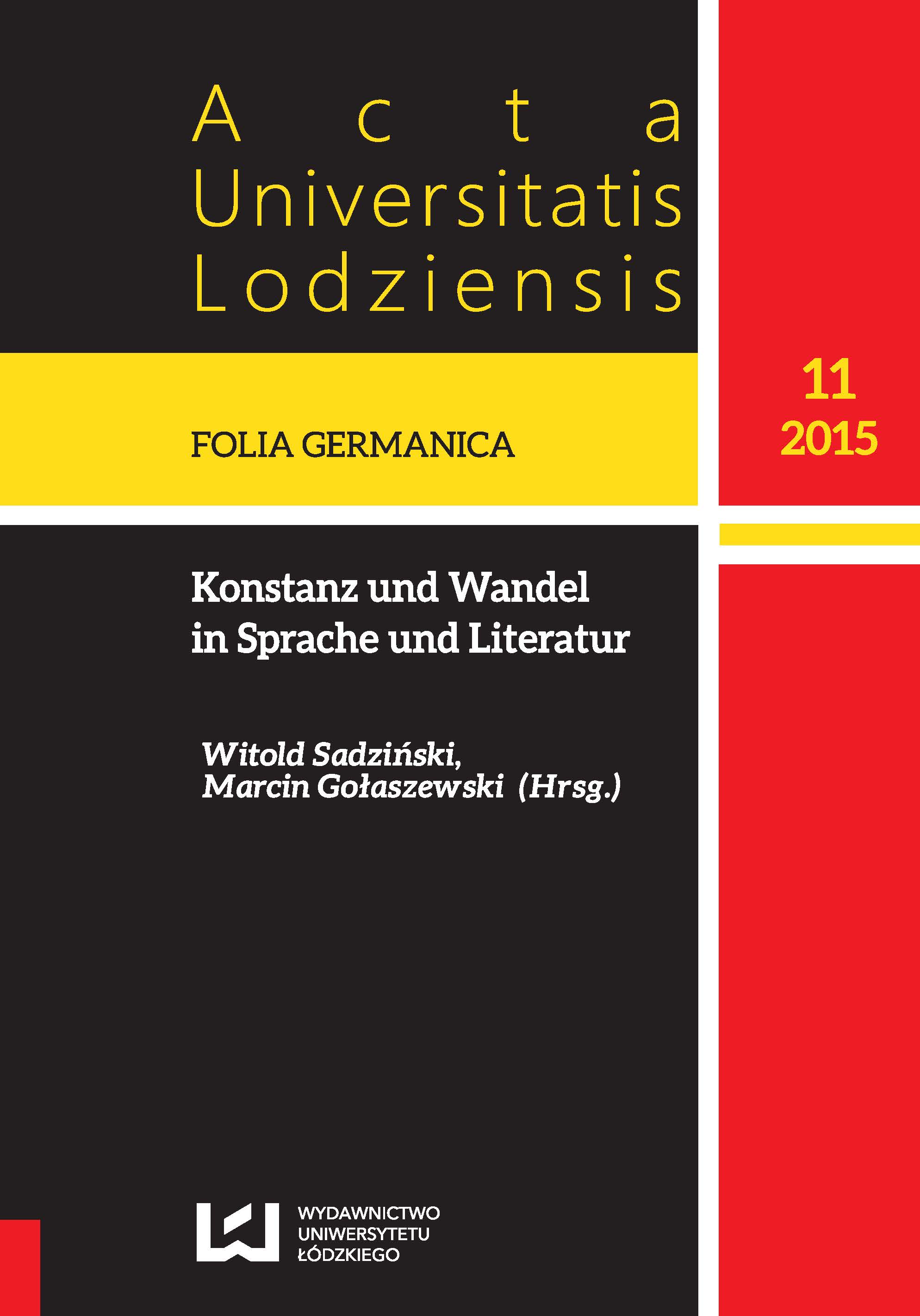Thomas Mann und Erich Kästner: E(rnst) versus U(nterhaltung), Exilliteratur versus Literatur unter Schreibverbot in der ‚inneren Emigration’
Thomas Mann and Erich Kästner: serious against entertainment, exile literature against literature under writing prohibition in the inner emigration
Author(s): Silke GrothuesSubject(s): German Literature, Philology, Theory of Literature
Published by: Wydawnictwo Uniwersytetu Łódzkiego
Keywords: Thomas Mann; Erich Kästner; national socialism;, Third Reich; inner and outer emigration; inwardness
Summary/Abstract: The writers Thomas Mann (1875–1955) and Erich Kästner (1899–1974) took in the years between 1933 and 1945 (in the so called ‘Third Reich’) extreme positions of inner and outer emigration, which can be shown concerning autobiographical aspects and concerning their works which they wrote during the time of national socialism. While Kästner, who represents the inner emigration, wrote humorous stories like Drei Männer im Schnee and Der kleine Grenzverkehr, Mann completed his tetralogy of Joseph und seine Brüder, which deals with the foundation and development of the monotheistic jewish world religion, in France, Switzerland and America where in 1943 he began his dark artist novel Doktor Faustus, while in Europe internicine warfare and the Shoa were in progress. While Erich Kästner, who was a very engaged political author in the so called Weimar Republic, was captivated during the period of national socialism by his inwardness, Thomas Mann released himself from this attitude in view of the Third Reich and became an emancipated author who was politically engaged and with moral integrity.
Journal: Acta Universitatis Lodziensis. Folia Germanica
- Issue Year: 2015
- Issue No: 11
- Page Range: 109-120
- Page Count: 12
- Language: German

